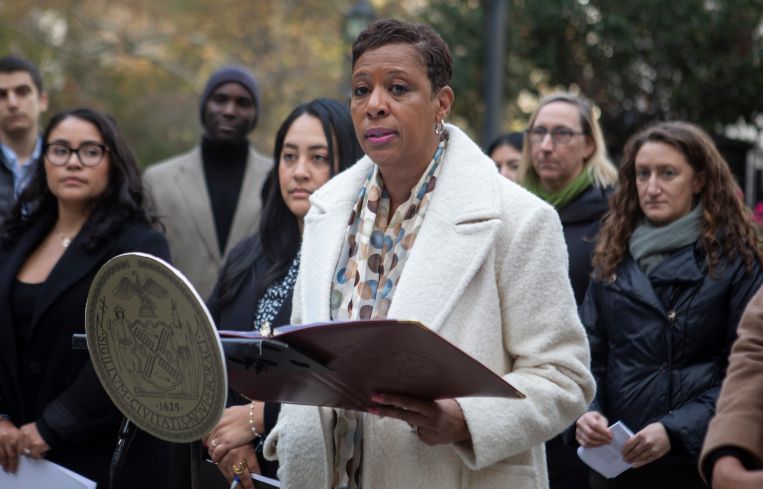NYC Council Approves Bills to Boost Housing and Industrial Development
By Rebecca Baird-Remba November 15, 2023 6:04 pm
reprints
The New York City Council unanimously voted Wednesday to approve two sweeping land use framework bills, one aimed at pushing city agencies to develop a land use and infrastructure plan for industrial zones, and the other geared toward creating housing production goals for each neighborhood.
The housing legislation, sponsored by Council Speaker Adrienne Adams, would require the Department of City Planning (DCP) and the Department of Housing Preservation and Development to submit a plan every five years that outlines housing production goals for every community district in the city.
The analysis would include strategies to increase affordable, senior and supportive housing development; identify preservation goals for low-income and supportive units in the district; provide anti-displacement strategies for lower-income communities; and identify investments for underserved neighborhoods.
“As we’ve seen in recent years, the lack of affordable housing threatens the stability of our communities and curbs our full potential as a society,” Bronx Councilmember Diana Ayala said during a press conference Wednesday morning on the bill. “I know from firsthand experience what it’s like to go without housing. No one should ever have to experience homelessness, and this experience is what fuels my commitment to provide housing for every New Yorker.”
Adams pointed out that the city had built only 200,000 new housing units over the past decade, while adding 630,000 residents and 1 million jobs.
“If we don’t address our housing shortage, it will deepen the affordability crisis, worsen homelessness, and push our residents out of the communities they call home,” said Adams.
She pointed out that the city needed distinct housing targets to ensure that the status quo — of a handful of neighborhoods producing a lot of affordable housing while many others produce little to none — doesn’t continue.
“Too many neighborhoods have been able to opt out of building affordable housing while others have shouldered more of the responsibility and deserve greater investment,” said Adams. “It is unacceptable when just one council district — Councilmember [Rafael] Salamanca’s District 17 in the Bronx — has produced more affordable housing than 26 other council districts combined, over the course of several years.”
In a separate piece of legislation, the council approved a bill that would require the city to create a plan for industrial neighborhoods and include recommendations to support industrial development and ways to add more industrial businesses and jobs. It will also aim to ensure coordination between city agencies for infrastructure needs — like roads, sewers and floor protection — in the areas as well as planning around industrial supply chains and green energy.
The bill, sponsored by Speaker Adams and Council members Amanda Farias and Jennifer Gutièrrez, would mandate that DCP, the New York City Department of Small Business Services and the New York City Economic Development Corporation come up with strategic plans every eight years. They would need to incorporate data on land use, jobs, energy usage, tax incentives and capital investments.
“I think it’s important for the city to be consistently looking at ways we are analyzing, evaluating and making our zoning better,” Farias told Commercial Observer. “It’s kind of amazing we have not focused on our manufacturing zones since 1961. … With this bill and around our district, I’m hoping to see our agencies come up with plans to grow our manufacturing sectors and the workforce.”
Rebecca Baird-Remba can be reached at rbairdremba@commercialobserver.com.



